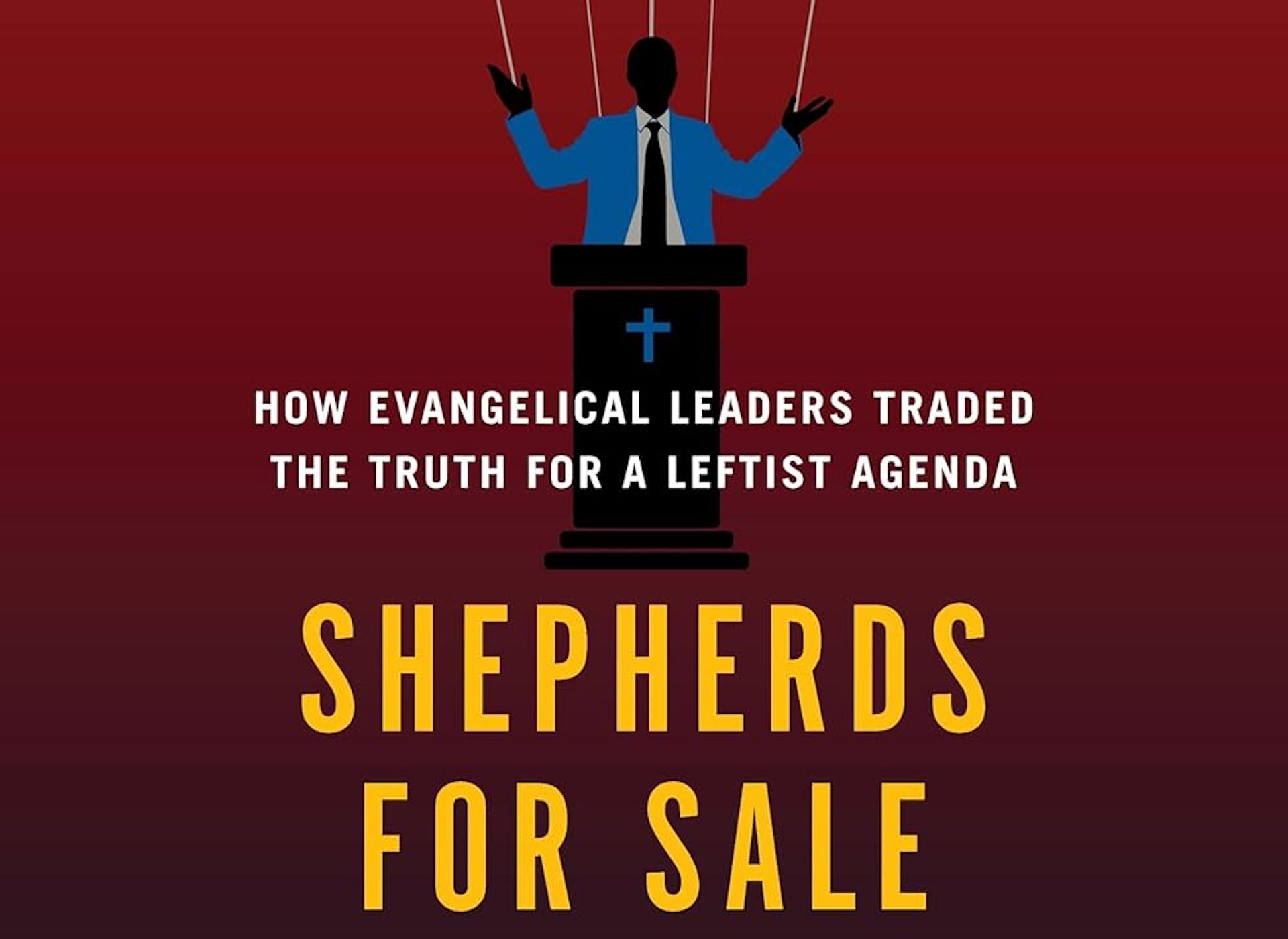
Review: Shepherds For Sale
Megan Basham’s new book on the politicization of the church sparks an Evangelical Civil War
Daily Wire culture reporter Megan Basham has turned the evangelical world on its head. July 30th marked the release of her controversial exposé Shepherds for Sale, which alleges that prominent evangelical leaders are being bought off by subversive left-wing organizations and billionaires.
In the past two weeks, Christians from the upper rungs of evangelicalism have condemned the book, arguing that its core premise is inaccurate, defamatory, and fueled by Trump apologism. A number of its detractors have focused on the book's minutiae, critiquing individual claims and pointing out factual inaccuracies as evidence that the entire work is suspect.
However, it doesn’t take much evidence to prove Megan’s basic thesis: toxic strains of secularism and progressivism have infected Protestantism and Evangelicalism. One only needs to observe the trajectories of the United Methodist Church and the Episcopal Church, both of which were splintered by religious leaders’ embrace of women’s ordination and gay marriage.
Basham’s work examines the left-wing funders and foundations who, over the past decade, infiltrated conservative institutions to drive a wedge between evangelical leaders and the religious right—a group which, Basham rightly notes, remains one of the active conservative voting blocs in the American electorate. The influx of billions of dollars from figures like eBay founder Pierre Omidyar has correlated with the leftward drift of organizations like the Southern Baptist Convention’s Ethics & Religious Liberty Commission, The Gospel Coalition, Baptist Press, and Billy Graham’s legacy publication Christianity Today.
The most direct example she provides comes from Fuller Theological Seminary fellow, Curtis Chang. During a January 2024 meeting of the Trinity Forum Chang admitted that his After Party bible study curriculum—developed to reframe “Christian political identity from today’s divisive politics”—had been funded by “predominantly progressive” organizations such as the Hewlett and Rockefeller Foundations. The Council for Christian Colleges and Universities had already encouraged 185 Christian schools to adopt After Party in October.
The problem, Basham takes care to specify, isn’t progressive Christians seeking public debates on issues such as climate change, racial reconciliation, and immigration policy. Rather, it’s [whose?] widespread attempts to coerce Christians into adopting left-wing positions as “a test of faithfulness.” Refusing to capitulate on open borders or critical race theory isn’t an alleged sign that your faith is insufficient.
She notes that leftist arguments are frequently pushed as a way to obey the biblical injunction to “love your neighbor.”
Why should the United States reward tens of millions of illegal immigrants with citizenship despite the fact they broke our laws and it drives down wages for blue-collar workers? Love your neighbor. Why should I take an experimental COVID-19 vaccine I don’t want when I’m statistically extremely unlikely to experience anything more than mild symptoms? Love your neighbor. Why should I support cap-and-trade carbon emission limits that will make everything more expensive? Love your neighbor.
While these arguments have done little to persuade conservative evangelicals, they’ve given celebrity pastors and church leaders a taste of secular fame and prestige, resulting in their relaxing of biblical stances on controversial issues such as climate change and sexual ethics. For their loyalty, these leaders are awarded with plum positions at The New York Times and The Atlantic.
These sharp accusations have resulted in many of Basham’s former friends and colleagues heavily criticizing her work, and to some degree, validating her arguments by focusing heavily on minor details.
For example, Warren Smith, who once worked alongside Basham at WORLD magazine, penned a scathing review over at The Dispatch, alleging that Basham propagandistically misrepresented many of the figures in the book as overtly hostile and presented their statements out of context. Crossway editor Samuel James further argued that the book is a “speculative jeremiad that substitutes insistence for proof and score-settling for reflection” that obscures the moral failings of the right.
Much of this criticism is just squabbling in the face of Basham’s greater narrative of evangelical apostasy. It's also clear that the larger pre-existing factors and backlash to Basham’s associations with more hard-line voices like Douglas Wilson and Stephen Wolfe are feeding the controversy.
But none of this has stopped the book from selling. On its release day, It became the #1 bestseller on Amazon in Christian Church Leadershipand is currently one of Amazon’s s top-selling nonfiction books . Despite her critics’ objections, Basham seems to have genuinely stumbled upon a deep anxiety within evangelicalism, a question that people want to be answered.
Despite her reservations about an ideological civil war between conservative and progressive evangelicals, Basham ends the book with an admonition that “open war is upon us” between evangelicals and their leaders. She calls for orthodox figures in the church to assert truth to power and reclaim the American Church before it's too late. Though the war didn’t start with Shepherds for Sale, it’s fair to say its publication intensified it. The battle lines have grown more rigid, and it remains to be seen if this eruption will result in an anti-progressive antibody response or another fruitless schism.
Shepherds for Sale is available on Amazon or directly from the publisher.
